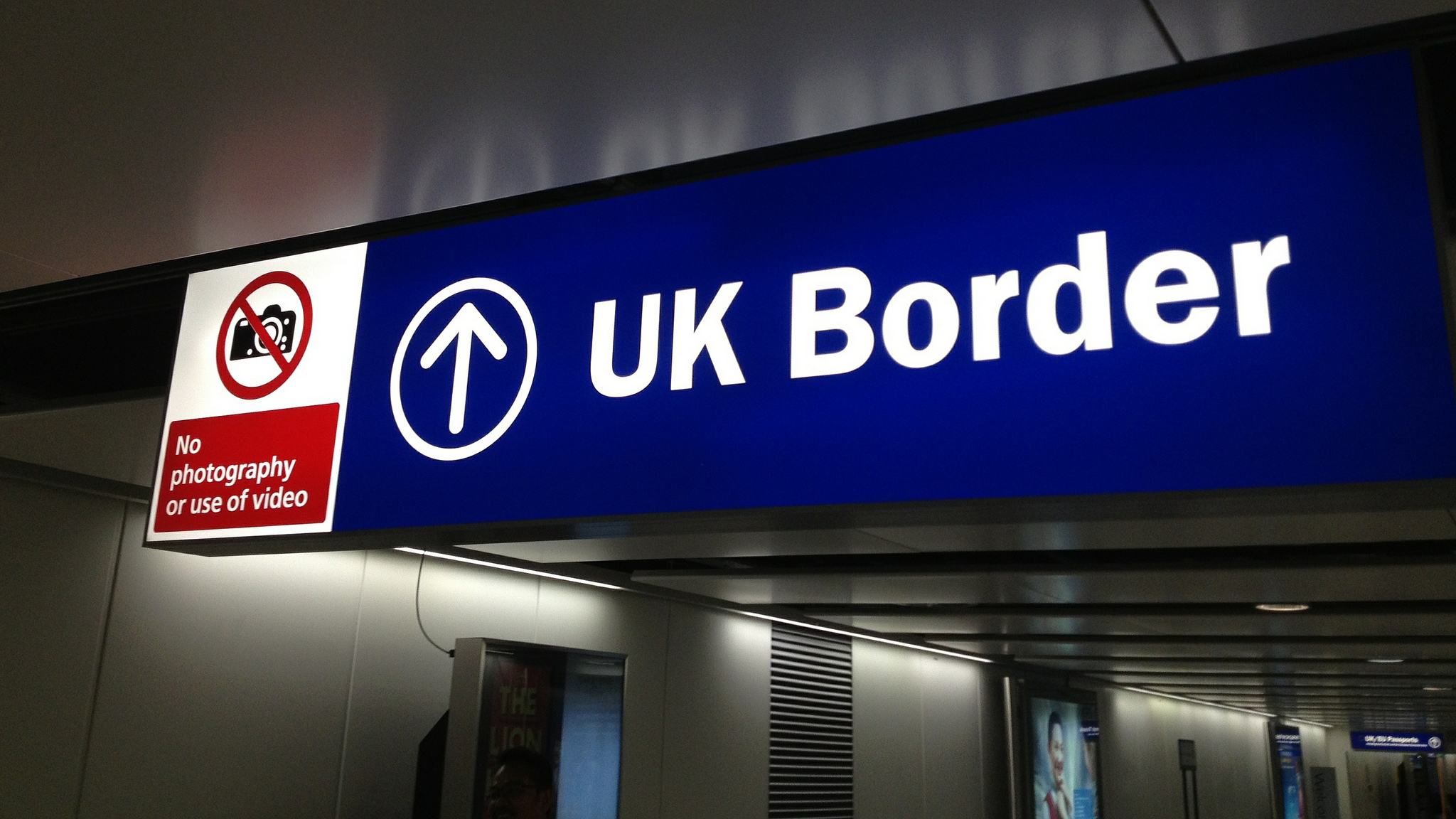This Election, Labour Should Lead the Way in Defending Immigration
by Ana Oppenheim
15 November 2019

On the day news broke about the worst A&E crisis since records began, the Tories tried to force immigration to the top of the agenda. With numbers plucked out of thin air, they attacked Labour’s policy, passed at conference in September, to defend and extend freedom of movement.
There was a time when the Conservatives and Labour used to compete on who could convince voters they were toughest on immigration. We all remember New Labour’s bashing of asylum seekers, Ed Millibands ‘controls on immigration’ mugs, and Theresa May’s ‘go home’ vans. There were no winners in that race to the bottom, only losers.
First among losers were, of course, the millions of migrants treated as convenient scapegoats for everything that goes wrong. The thousands of people locked up in detention centres with no release date. The Windrush victims whose lives were ruined by hostile environment policies, and who, according to lawyers, have not yet seen a penny in compensation. The countless migrants left destitute and homeless by the “no recourse to public funds” condition attached to their visas. And now over 3m EU nationals who have to apply to be able to stay in their own homes if Brexit happens, with charities warning that some of the most vulnerable could face deportation.
Perhaps the 2016 referendum would have gone very differently had the left refused to play the blame game. For some, the result served as a wake-up call: campaigns were set up across the country to bring communities together, combat hate and show migrants that they are welcome. Others saw the leave vote as a mandate to close the borders. Labour’s 2017 manifesto combined the two approaches: while full of positive rhetoric about migrants, it pledged to end free movement and expand “no recourse to public funds”. Subsequent progressive policy announcements, such as shutting down Yarl’s Wood and Brook House immigration detention centres, were always accompanied with assurances that a Labour government would hire more border guards and clamp down on “illegal immigrants” – a term we should have long purged from our discourse.
This September, a radical motion on immigration put to Labour’s annual conference sought to put an end to this confusion. On top of defending and expanding free movement rights, the motion included commitments to actively challenging anti-migrant narratives, rejecting any systems based on ‘points’ or arbitrary caps, closing all detention centres, ending “no recourse to public funds”, and giving all UK residents the vote. When passed near-unanimously by delegates, it reopened the immigration debate – but also broadened it.
The demand to ‘extend’ free movement was intentionally vague – no one expected that Labour would announce an end to all border controls overnight. However, it raised the question of how freedoms currently awarded to EU citizens could be expanded beyond just Europe. The proposal to let migrants vote is a prompt to see migrants not as economic units or objects of charity but as equal participants in society. Ultimately, we on the left want to see a world where people’s rights and opportunities are not determined by accident of birth – so let’s start planning how we will get there.
In this election, Labour has a chance to transform the conversation. Under Boris Johnson, the Tories will always attack Labour’s immigration plans for not being brutal enough. We can accept these terms of debate, or attempt to change the topic. Or, alternatively, we can meet the challenge head on and stand by our values proudly.
Many fear that the latter approach, while principled and idealistic, would be a vote loser. This doesn’t have to be the case. This month’s YouGov poll showed that, when framed as a reciprocal right, freedom of movement is supported by an overwhelming majority of voters: 67% to 15%. Attitudes towards migration in general have also improved. A recent Hope Not Hate report found that 63% of the public now believe immigration to be a good thing, up from 40% in 2011. This shift has not just happened on its own but thanks to the countless campaigners who’ve worked hard to debunk myths, challenge prejudice and build solidarity.
Labour can and should be front and centre of that movement. Just as it has convinced much of the country that austerity was a choice rather than a necessity, Labour should be making arguments that take on the supposed ‘need’ to cut immigration. And just as it has begun to put forward proposals such as the four-day week – until recently seen as a fringe demands – Labour should have the courage to put bold policies on the table when it comes to migrants’ rights.
What should Labour do, then? Start by including the entirety of the Labour Campaign for Free Movement motion in its manifesto, and go on the offensive. Take no lessons on immigration from the party that is responsible for almost daily scandals involving the Home Office. Expose the Tories’ deadly record while championing a radical alternative.
A campaign in defence of immigration should not just be based on economic arguments, humanitarianism and embracing diversity, but also on on the princple of radical class solidarity. Freedom of movement is primarily the right of working class people to live where we choose, just like the rich can. It’s the right to work and unionise knowing that your visa doesn’t depend on your employer. Whether we’re from England, Romania or Jamaica, working class people have more in common with each other than with the born-to-rule millionaires who are trying to divide us. We know we have the answer to concerns about jobs, wages, housing and the NHS crisis. It’s not border controls – it’s socialism.
Ana Oppenheim is an organiser for the Labour Campaign for Free Movement.